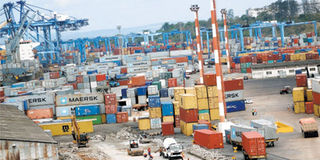Efficiency is crucial at Dar es Salaam port

What you need to know:
- Tanzania Revenue Authority introduced TANCIS in 2014 to replace the Automated System for Customs Data (ASYCUDA) that had been in use since 2005. The objective of the system was to speed up clearance of cargo at Dar es Salaam Port and boost business traffic through increased efficiency.
The emerging complaints by stakeholders in the ports sub-sector over delays in clearance of cargo through the Tanzania Custom Integrated System (TANCIS) are worrying.
Tanzania Revenue Authority introduced TANCIS in 2014 to replace the Automated System for Customs Data (ASYCUDA) that had been in use since 2005. The objective of the system was to speed up clearance of cargo at Dar es Salaam Port and boost business traffic through increased efficiency.
However, reports that the new system has been slowing down clearance of cargo at the port need a prompt corrective response. As evidenced by President John Magufuli’s impromptu visits to the port, the importance of the facility as a revenue source for the government cannot be overstated.
A recent report by PricewaterhouseCoopers showed that the port has the potential to overtake its regional rivals if it improved its operational performance.
Last year, President Magufuli launched a $421 million project to nearly double the capacity of the congested port as part of the Dar es Salaam Maritime Gateway Project (DSMGP). This expansion will only count for something if port efficiency is enhanced.
It is estimated that the Dar es Salaam Port handles over 90 per cent of the country’s cargo traffic , and has the potential of adding a whopping seven per cent growth to the country’s GDP if operated efficiently.
But to achieve this and be able to effectively compete with its regional peers, the port authorities should move swiftly to end the challenge of slow processing of info by TANCIS that causes delays.
Since the adoption of this paperless system, clearing and forwarding agents have relied heavily on it to clear cargo. Stakeholders say that sometimes personnel are forced to wait for the system to respond before they can clear cargo. This is unacceptable for a paperless system.
Boost relations with Israel
Industrialisation vigour is growing in Tanzania. There are promising signs that the much-needed political will to bring about positive change is there. Industry, Trade and Investment minister Charles Mwijage on Monday called on Israeli players in the pharmaceutical industry to invest in Tanzania as well.
The call is timely, given the fact that Israel is among countries that have made great strides in pharmaceuticals.
The call is also a sign that the Tanzanian government is intent on cultivating partnerships with other countries to enhance not only the transfer of technology, but that of capital as well.
In the modern world, no country can fully sustain itself without forging partnerships. The earnest appeal is therefore timely.
It is noteworthy that the call was made during the Tanzania-Israel Business and Investment Forum (TIBIF), the very gathering that currently facilitates good trade relations between the two countries.
The positive response to the call by the Israeli minister for Justice, Ms Ayelet Shaked, is proof that the Middle East nation, which has been a long-time development partner of Tanzania, will continue to have a positive impact on Tanzania’s development.
Tanzanians and their government should strive to meet the minimum criteria of attracting such investments.
Ease of doing business, transparency, good attitude towards work, taking pro-active measures and approaching all matters professionally are some of the qualities needed to enhance this partnership.




